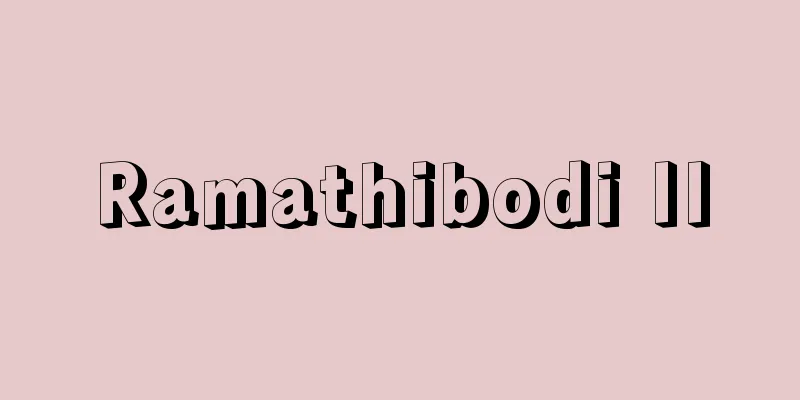Rockabilly

|
…In the mid-1950s, white country music and black rhythm and blues were combined to create rock'n'roll. Country singer Elvis Presley further strengthened the country elements and created rockabilly (a compound word of rock and hillbilly. Hillbilly refers to country music or its down-to-earth counterpart), which gained a much wider audience than the black world. … From "Hillbilly"...Originally, this term was a derogatory term for people from the southeastern mountain areas, but in 1925 it began to be used in the record industry to describe their music, and was used until the end of World War II. In the 1950s, the country-style rock and roll of the American South was called rockabilly, a combination of hillbilly and rockabilly, and became a hit with Elvis Presley and others. Country Music [Nakamura Toyo]... From [Rock]...It is said that it was radio disc jockey Alan Freed (who himself appeared in The School of Violence) who first called this new music "rock and roll." In addition, Presley and those who followed him, such as Carl Perkins (1932-), with "Blue Suede Shoes," and Jerry Lee Lewis (1935-), with "Whole Lotta Shakin' Going On," all had strong elements of southern country music, so their music came to be called "rockabilly," a compound word of rock and hillbilly, while the music of singers who had a sensibility closer to popular songs, such as Pat Boone (1934-), with "I'll Be Home," and Paul Anka (1941-), with "Diana," came to be called "rock-a-ballad," a compound word of rock and ballad. As a result of this diversification and the creation of various derivative words, by the 1960s it had become common to use the term "rock" to refer to all of these genres, and "rock 'n' roll" to refer to the early rock music of the mid-1950s. *Some of the terminology that mentions "rockabilly" is listed below. Source | Heibonsha World Encyclopedia 2nd Edition | Information |
|
…50年代半ばには,白人のカントリー・ミュージックと黒人のリズム・アンド・ブルースが合成されてロックンロールrock’n rollが生まれる。さらにカントリー歌手エルビス・プレスリーが,よりカントリーの要素を強めてロカビリーrockabilly(rockとhill‐billyの合成語。ヒルビリーはカントリー・ミュージックないしその泥臭いものをいう)をつくり出し,黒人世界よりもはるかに広い聴衆を獲得することになる。… 【ヒルビリー】より…元来この言葉は南東部山岳地帯などの出身者に対する蔑称だったが,1925年にレコード業界で彼らの音楽を指すために使われ始め,第2次世界大戦が終わるころまで使用された。なお50年代になって,アメリカ南部のカントリー的なロックンロールが,ヒルビリーと合成したロカビリーrockabillyの語で呼ばれ,エルビス・プレスリーらによってヒットした。カントリー・ミュージック【中村 とうよう】。… 【ロック】より… こうして生まれてきた新しい音楽を〈ロック・アンド・ロール〉と呼びはじめたのは,ラジオのディスク・ジョッキーをしていたアラン・フリードAlan Freedだとされている(彼自身も《暴力教室》に出演した)。また,プレスリーや彼に続いて現れた《ブルー・スウェード・シューズBlue Suede Shoes》のカール・パーキンズCarl Perkins(1932‐ ),《ホール・ロッタ・シェーキン・ゴーイング・オンWhole Lotta Shakin’ Going On》のジェリー・リー・ルイスJerry Lee Lewis(1935‐ )などがいずれも南部のカントリー音楽の要素を強くもっていたことから,彼らの音楽をロックとヒルビリーhillbillyの合成語で〈ロカビリーrockabilly〉と呼び,《アイル・ビー・ホームI’ll Be Home》のパット・ブーンPat Boone(1934‐ )や《ダイアナDiana》のポール・アンカPaul Anka(1941‐ )のようにポピュラー・ソングに近い感覚を示した歌手たちの音楽を,ロックとバラードの合成語で〈ロカバラードrock‐a‐ballad〉と呼ぶようになった。こうしてさまざまの派生語を生みだしつつ多様化していったため,1960年代になると,それらの全体を呼ぶ言葉がロック,1950年代中葉の初期のロックを指す言葉がロックンロール,と使い分けるのが一般的となった。… ※「rockabilly」について言及している用語解説の一部を掲載しています。 出典|株式会社平凡社世界大百科事典 第2版について | 情報 |
<<: Rocinela maculata (English spelling) Rocinela maculata
>>: Rock-a-ballad (English spelling) rockaballad
Recommend
Ibn al‐Faradī
962‐1013 A scholar from Andalusia during the Islam...
Su Hanchen (English spelling)
A Chinese painter at the Painting Academy in the l...
Probation officer - Hogoshi
Probation officers assist in the rehabilitation of...
os hyoideum (English spelling) oshyoideum
…the upper surface of the body has a dental alveo...
Stirred Tank Reactor - Stirred Tank Reactor
...However, in actual flow reactors, there are fe...
Polydactyly
What is the disease? Polydactyly is the formation...
Southern Cowherd Song
A labor song from the Shimohei and Waga districts ...
Takahama [city] - Takahama
A city in central Aichi Prefecture. It was incorpo...
Kanteletar - Kanteretar (English spelling)
A collection of Finnish national lyric poetry. Th...
Obersachsen
...Historically, the former roughly corresponds t...
Pekalongan (English spelling)
A port city on the Java Sea in Javatenga Province,...
Cherry Orchard - Sakuranosono (English)
A four-act play by Russian playwright Chekhov. Wr...
Pedro II - Pedro
Emperor of Brazil (reigned 1831-1889). Son of Pedr...
Taireinogi (Great Ceremony) (English: Da-li; Ta-li)
A political struggle in China during the reign of ...
Aphids (bats) - Aphids
...A small mammal of the family Vespertilionidae ...





![Omaezaki [town] - Omaezaki](/upload/images/67cb226dcb516.webp)

![Guinea [Region] (English name)](/upload/images/67cb551f7f3ac.webp)

